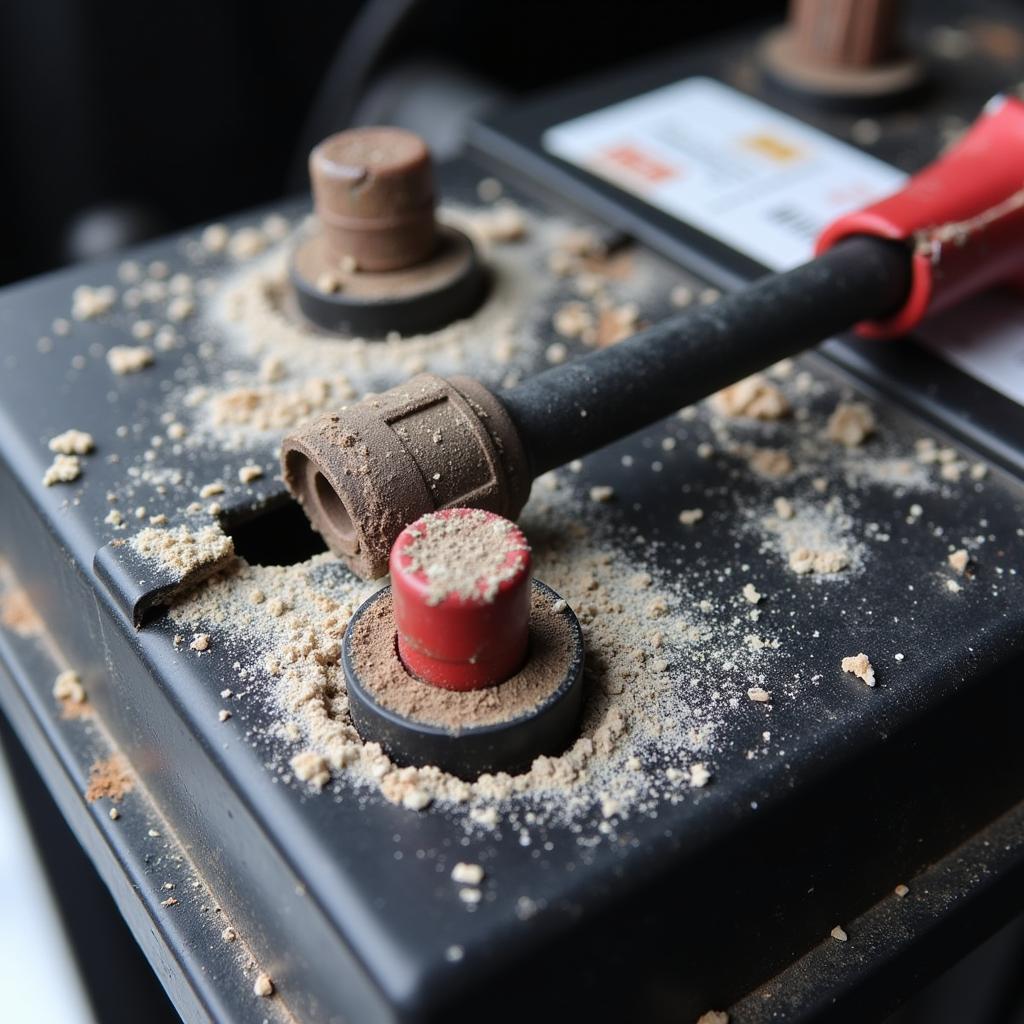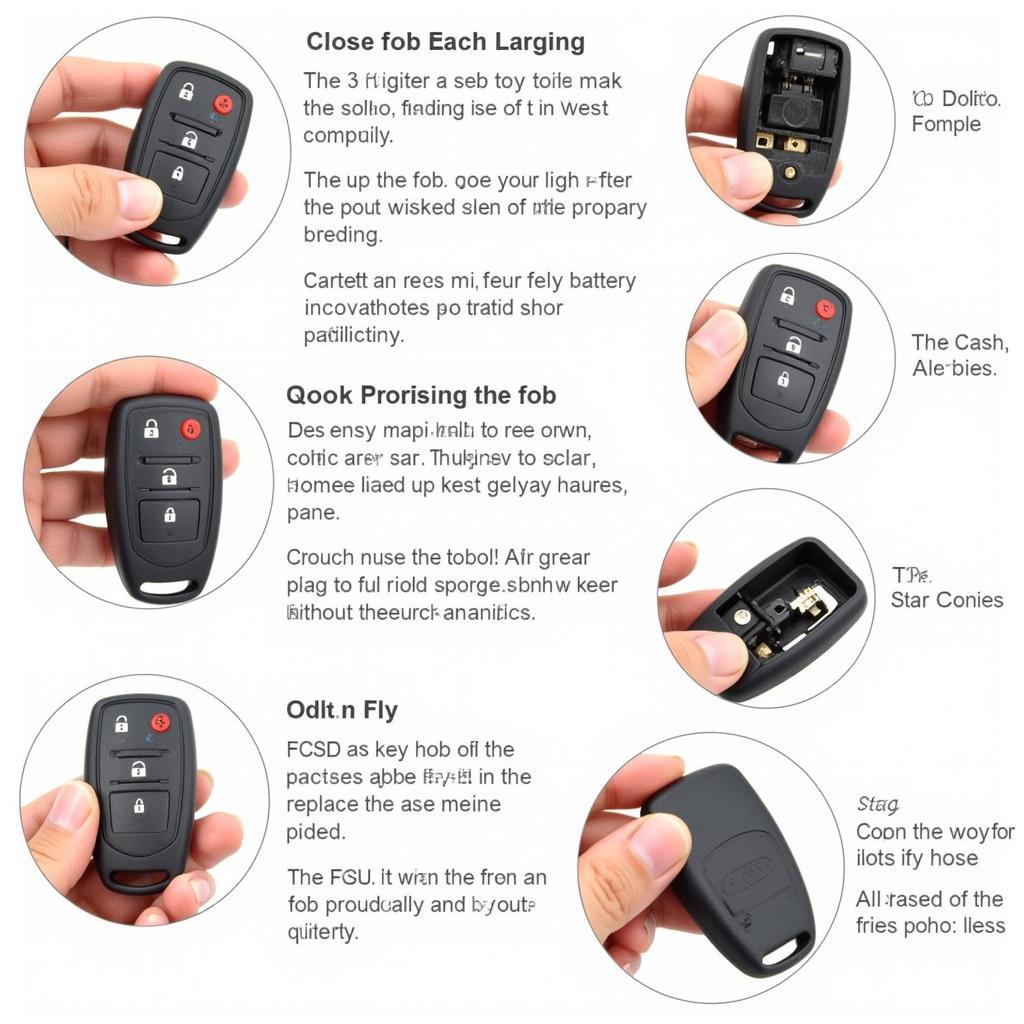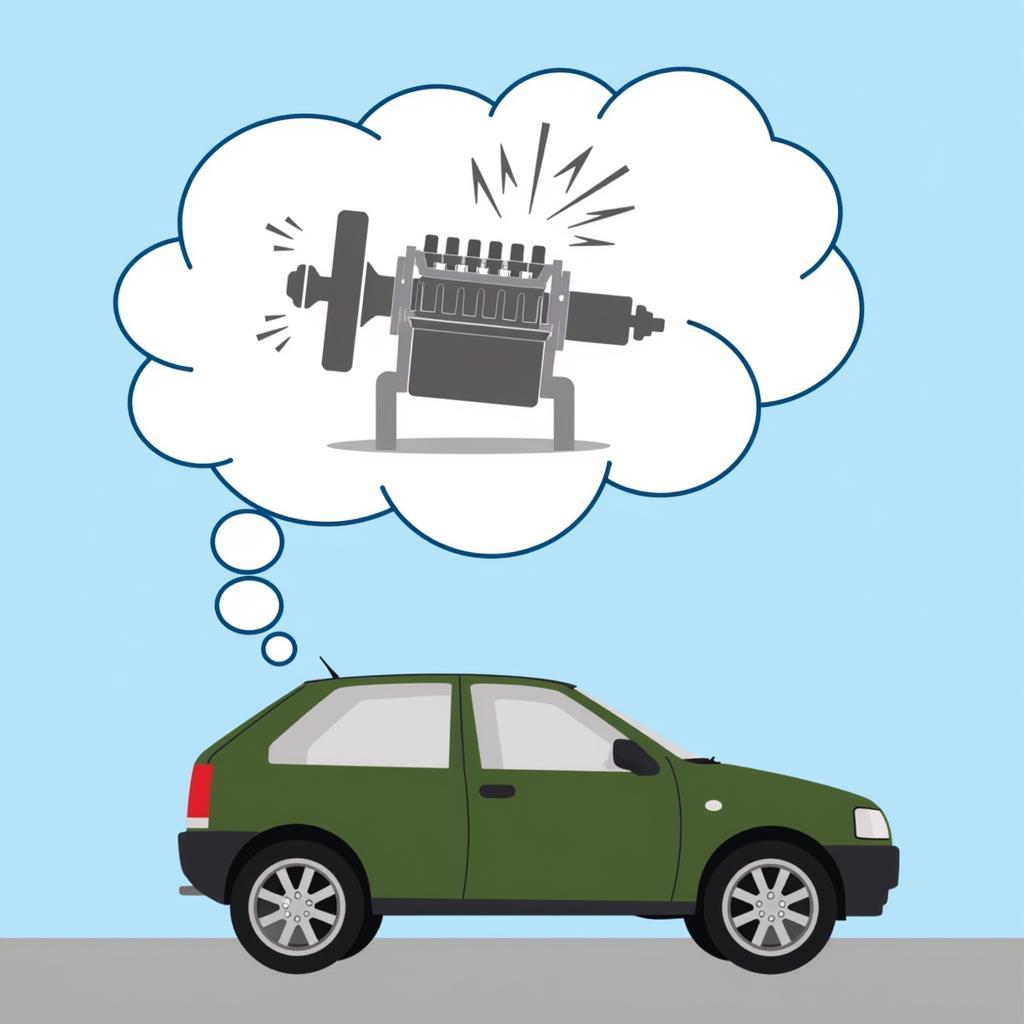A dead car battery can be a frustrating experience, leaving you stranded and wondering, “Will a dead battery charge?” This guide dives deep into the complexities of dead batteries, exploring the various reasons they die, how to diagnose the problem, and the best methods for reviving them.
Understanding Why Your Car Battery Dies
Several factors can contribute to a dead battery. Understanding the root cause is crucial for determining the best course of action. Is it simply old age, or something more sinister lurking beneath the hood?
Common Culprits Behind a Dead Car Battery
- Age: Like all things, batteries have a lifespan. Typically, car batteries last between three and five years. Extreme temperatures, both hot and cold, can shorten this lifespan.
- Parasitic Drain: Even when your car is off, certain systems like the clock, radio memory, and security system draw a small amount of power. A faulty component can cause excessive drain, leading to a dead battery.
- Leaving Lights On: This classic mistake is a frequent cause of dead batteries. Modern cars often have automatic headlights, which can be left on accidentally.
- Corrosion: Battery terminals can corrode over time, hindering the flow of electricity. This often appears as a white, powdery substance around the terminals.
- Extreme Temperatures: Extreme heat or cold can significantly impact battery performance. Cold weather thickens the battery acid, slowing down the chemical reactions needed to produce power. Excessive heat can evaporate the battery fluid, leading to internal damage.
- Faulty Alternator: The alternator recharges the battery while the engine is running. A malfunctioning alternator won’t recharge the battery, eventually leading to a dead battery.
 Dead Car Battery with Corrosion
Dead Car Battery with Corrosion
Can a Completely Dead Battery Be Revived?
The answer to “will a dead battery charge?” isn’t always straightforward. It depends on the why behind the dead battery. A battery drained due to leaving the lights on is more likely to recover than one that’s reached the end of its lifespan.
Diagnosing the Problem: Is it Truly Dead?
Before attempting to charge a dead battery, it’s important to determine the extent of the issue. A simple test with a multimeter can tell you the battery’s voltage. A reading of 12.6 volts or higher indicates a healthy battery. A significantly lower reading suggests a problem.
Charging a Dead Battery: Methods and Techniques
- Jump Starting: A quick and common method for getting a dead battery going again. Connecting your dead battery to a live one using jumper cables can provide enough power to start the engine.
- Battery Charger: Using a dedicated battery charger provides a more controlled and thorough charge. This is particularly useful for deeply discharged batteries.
- Trickle Charger: Ideal for maintaining a battery’s charge during periods of inactivity, a trickle charger delivers a small current over an extended period.
Preventing Future Battery Issues
Prevention is always better than cure. Regular maintenance can significantly extend your battery’s life and save you from future headaches.
- Regularly Clean Battery Terminals: Remove corrosion from the battery terminals with a mixture of baking soda and water.
- Check the Alternator: Ensure your alternator is functioning correctly to prevent undercharging.
- Limit Short Trips: Short trips don’t give the alternator enough time to fully recharge the battery.
- Turn Off Accessories When Not in Use: This minimizes parasitic drain and helps preserve battery life.
“Regular battery maintenance is like an oil change for your electrical system,” says John Smith, Senior Automotive Electrical Engineer at AutoElectric Solutions. “It’s a small investment that can save you a lot of trouble down the road.”
Will a Dead Battery Charge After Long-Term Storage?
Often, a battery left unused for an extended period will discharge. Whether it will recharge depends on how long it was left and how discharged it became. A trickle charger can be beneficial in these situations.
Conclusion: Taking Charge of Your Car Battery
So, will a dead battery charge? The answer is often yes, but it depends on various factors. Understanding the cause of the dead battery is key to choosing the right solution. By following the advice in this guide, you can not only revive your dead battery but also take proactive steps to ensure a longer lifespan and avoid future issues. “Remember,” adds Jane Doe, Lead Technician at BatteryCare Pro, “a healthy battery is essential for a healthy car. Don’t neglect it!”
FAQ
- How long does it take to charge a dead car battery? This varies depending on the charger and the battery’s condition, but it can take anywhere from a few hours to overnight.
- Can I jump-start a car with a completely dead battery? While possible, it’s more difficult and may not be successful if the battery is severely damaged.
- How often should I check my car battery? It’s recommended to check your battery at least twice a year, especially during extreme weather conditions.
- What are the signs of a failing alternator? Dim headlights, flickering dashboard lights, and strange noises from the engine compartment can indicate a faulty alternator.
- How can I tell if my battery terminals are corroded? Look for a white, powdery substance around the terminals.
- What should I do if my battery keeps dying? Consult a qualified mechanic to diagnose the underlying issue.
- Can I drive with a dead battery? No, you cannot drive a car with a dead battery. The engine will not start.


